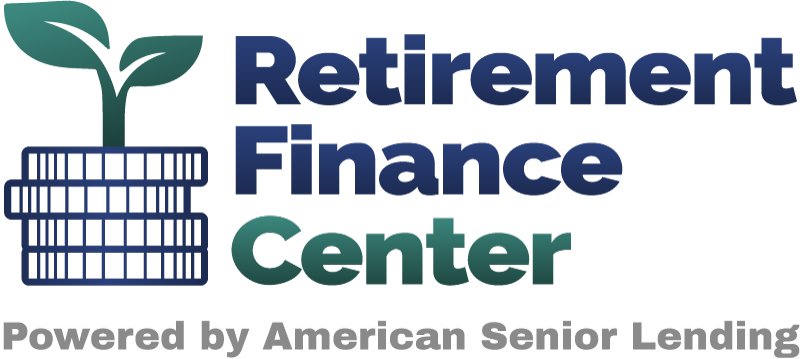Reverse Mortgage Eligibility Requirements
Reverse mortgages can be a valuable financial tool for seniors who want to access equity in their homes without having to immediately sell their property or make monthly mortgage payments (the borrower is still responsible for paying property tax and insurance).
However, before deciding to apply for this variety of loan, it is essential to understand the reverse mortgage eligibility requirements, fees, and obligations that come with this type of loan.
What is a Reverse Mortgage?
A reverse mortgage is a loan that allows homeowners who are at least 62 years old to borrow money against the equity in their homes. Unlike traditional mortgages, with a reverse mortgage, the borrower doesn’t have to make any monthly mortgage payments during the loan term.
The loan balance increases over time and is repaid when the borrower passes away, ceases using the property as the borrower’s primary residence, or defaults on the loan terms causing the loan to become due.
Eligibility Requirements for a Reverse Mortgage

To be eligible for a reverse mortgage, you must meet the following criteria (this may not be a complete list of conditions to determine qualification):
- Age: You must be at least 62 years old. If you’re married and your spouse is under the age of 62, they may file as a non-borrowing spouse.
- Property Type: The property must be your primary residence, which means you live in the home for at least six months per year.
- Equity: You must have sufficient equity in your home. The amount of equity required varies depending on the lender and the specific loan program.
- Ownership: You must own your home outright or have a significant amount of equity in the property. If you have an existing mortgage, you must pay it off with the proceeds from the reverse mortgage at your loan closing.
- Financial Assessment: You must undergo a financial assessment to confirm your ability to pay property taxes, homeowners insurance, and other property-related expenses.
- Counseling: You must attend a counseling session with a HUD-approved counselor before applying for a reverse mortgage. The counselor will explain the pros and cons of a reverse mortgage, discuss alternatives, and review the eligibility requirements.
The Potential Advantages of a Reverse Mortgage
A reverse mortgage could provide seniors with several potential advantages, including:
- Access to Needed Funds: A reverse mortgage can provide you with access to your home’s equity to help pay for medical expenses, home repairs, or other bills.
- No Monthly Mortgage Payments: With a reverse mortgage, you don’t have to make any monthly mortgage payments for the term of the loan. As with any mortgage, you’ll need to continue to meet your loan obligations—keeping current with property taxes, insurance, and maintenance.
- Flexibility: You can use the funds from a reverse mortgage for any purpose. There are no restrictions on how you can use the money.
- Peace of Mind: A reverse mortgage can help you stay in your home and age in place, providing you with peace of mind as long as you continue to meet your loan obligations.
The Costs of a Reverse Mortgage
While a reverse mortgage can provide many potential advantages, it’s important to understand that there are fees and costs associated with this type of loan. Some of the costs you may incur include:
- Origination Fee: This fee covers the lender’s costs to originate the loan. It can range from 0.5% to 2% of the loan amount.
- Mortgage Insurance Premium: This insurance protects the lender if the loan balance exceeds the value of the property when the loan is repaid. It can range from 0.5% to 2.5% of the loan amount.
- Closing Costs: These costs include appraisal fees, title insurance, and other fees associated with closing a mortgage loan.
- Interest: Interest is charged on the loan balance and accrues over time. The interest rate is typically higher than a traditional mortgage.
- Servicing Fee: This fee covers the cost of servicing the loan, including sending statements and monitoring the property.
Repayment of a Reverse Mortgage
The loan must be repaid when the last surviving borrower passes away, moves out of the home, ceases using it as the surviving spouses’ primary residence, or defaults on the loan. The repayment amount is the loan balance plus any accrued interest, mortgage insurance premiums, and fees. The repayment can be made by selling the property, refinancing the loan, or using other assets to pay off the debt.
If the loan balance exceeds the value of the property, the borrower or their heirs are not responsible for the difference.
In Closing
A reverse mortgage can be an excellent financial tool for seniors who want to access the equity in their homes without selling their property or making monthly mortgage payments. However, it’s essential to understand the eligibility requirements, costs, risks, and repayment obligations before applying for a reverse mortgage.
If you’re considering a reverse mortgage, it’s important to talk to a HUD-approved counselor and a qualified lender who can help you understand your options and make an informed decision. With careful planning and guidance, a reverse mortgage can help you achieve your financial goals and enjoy your retirement years.
